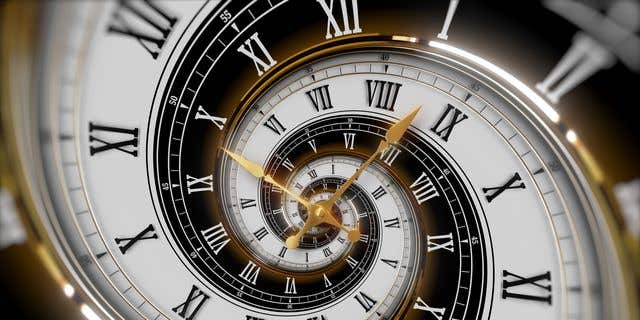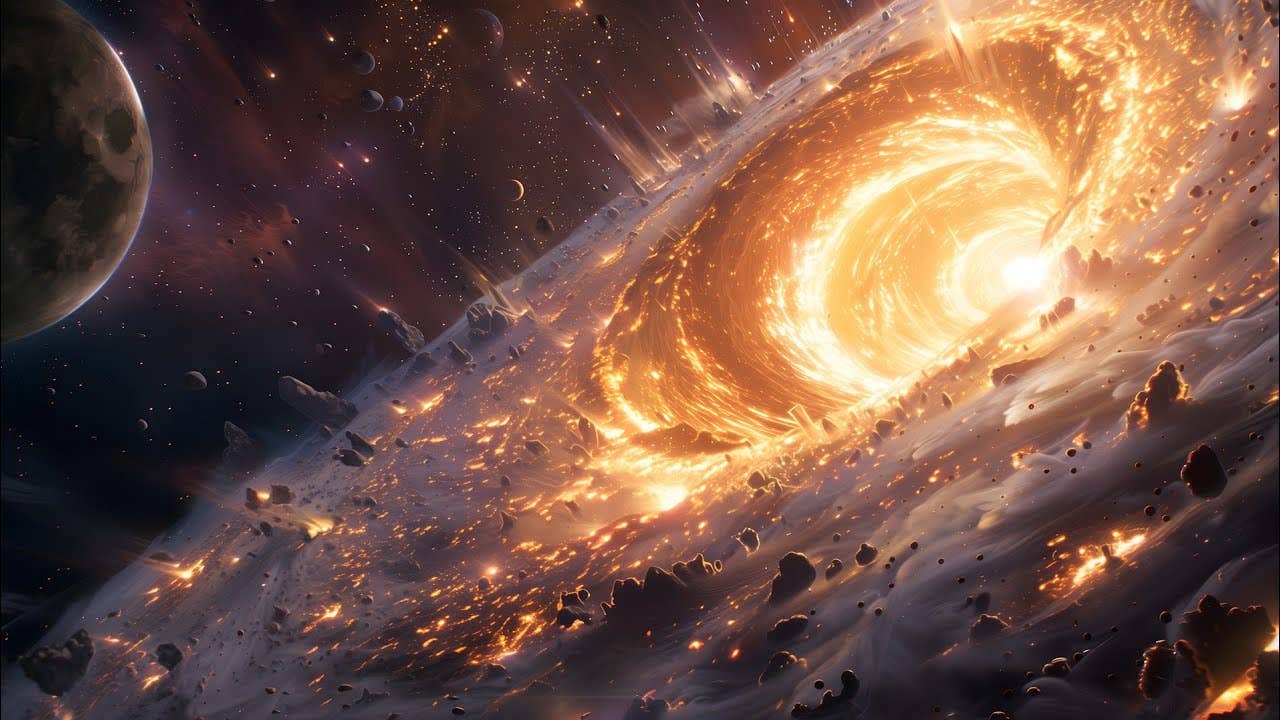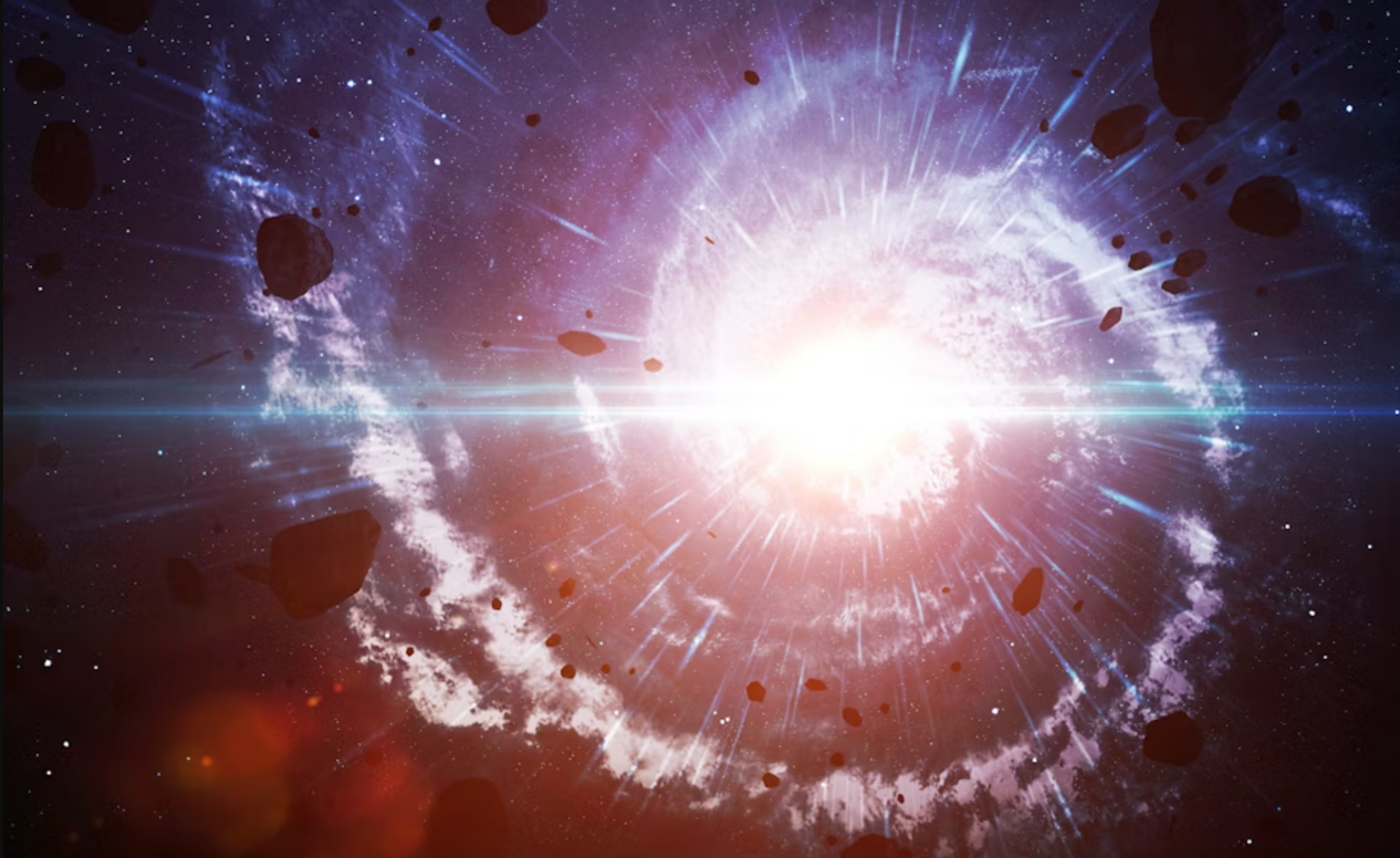The chilling side effect of time travel: Total memory loss
New findings reveal a shocking twist: even if time travel is possible, it might erase every memory of the journey.

Time travel might erase your memory, says new research linking physics and entropy in closed timelike curves. (CREDIT: Getty Images)
A trip through time has always sparked curiosity. The idea that you could step into a machine and emerge in the past or future has captured human imagination for generations. While science fiction often paints time travel as thrilling, recent work suggests it may be far more complex—and less fun—than you might think.
The Physics Behind the Possibility
Scientists have long known that the basic laws of physics don't rule out time travel. These laws work whether time moves forward or backward. That fact alone has kept the dream alive for many researchers. The idea has inspired serious studies involving warped spacetime and strange quantum effects. Some even created models based on real physics, hoping to make time travel more than fantasy.
But building a working time machine has proven tricky. Many designs require conditions that we can't create or even imagine in our universe. Still, supporters cling to one fact: science has not proven time travel impossible.
A Twist from Thermodynamics
Lorenzo Gavassino, a mathematician at Vanderbilt University, may have dealt a heavy blow to time travel hopes. His work explores what really happens if someone could travel in a loop through spacetime—a route known as a closed timelike curve. This kind of trip would bring you back to the exact moment you left.
Here’s the catch: according to Gavassino, while time travel may not break the rules of physics, it could break your memory.
His findings are based on the second law of thermodynamics, which says that entropy—or disorder—in a system always increases over time. You see this every day. Broken eggs don’t reassemble. Coffee doesn’t separate back into water and beans. This law is special because it gives time a direction: forward.
When someone travels through a loop in time, entropy must end up where it started. Since entropy tends to rise, there must be a peak point in the middle of the trip. That peak creates problems.
“Beyond this point,” Gavassino explains, “all thermodynamic processes (including biological processes such as memory formation and aging) are reversed.” In other words, your memories would vanish as the trip wraps around to the start.
Related Stories
Your Mind in Reverse
In simple terms, time travel could make you forget everything you experienced during the trip. Gavassino’s thought experiments suggest that even the brain’s process of storing memories would reverse. The idea doesn’t only affect human memory. It also applies to computers, clocks, and even the structure of matter itself.
He modeled memory as an interaction between an object and a “memory-keeper.” His math shows that any memories made during the loop must be erased to restore the system to its original state. No memory—human or machine—can survive the journey.
This result adds a new layer of complexity to time travel. Even if you could build the machine, you might return with no idea that you ever left.
Time Loops and Broken Clocks
Gavassino didn’t stop at memory. He also explored what happens to clocks during a round trip in time. For a clock to complete the loop and return to its starting point, it must tick a whole number of times. If it doesn’t, it won't match up with the same time on return.
This mismatch leads to flaws in how clocks measure time in a closed timelike curve. Since clocks rely on the steady movement of atoms, the same problem affects how matter behaves. At a basic level, time travel could disrupt the very essence of how things work.
It’s a far cry from the smooth rides shown in movies. Instead, you’d be facing broken clocks, scrambled matter, and lost memories.
The Experience of Nothing
This idea completely changes what time travel might feel like. If your mind resets, you wouldn’t even know you had traveled. It would be like blinking and never leaving. Gavassino puts it bluntly: “Any memory that is collected along the closed timelike curve will be erased before the end of the loop.”
You would step into a time machine, return to the same moment, and have no memory of anything in between. It’s like writing a story in the sand only to have the tide wipe it clean before anyone reads it.
Room for Hope?
Still, the idea isn’t entirely hopeless. There might be loopholes in the argument. Gavassino’s work focuses on entire systems, like a spaceship and everything inside it. But the second law of thermodynamics only applies to the whole, not always to each part.
That means some parts of a system might decrease in entropy—gain order—while others increase it. This is how memory works in the first place. Your brain forms memories by creating structure in certain cells even as your body, as a whole, becomes more disordered.
So, there might be a way for some memories to survive the loop. This idea is not proven, but it offers a glimmer of hope. If even part of your brain can sidestep the entropy problem, then maybe, just maybe, you could take a round trip through time and remember it too.
That would be a game-changer for time travel. It would move the idea from abstract theory a step closer to real human experience.
A Reality Check for Dreamers
Of course, anyone who dreams of traveling through time should take these ideas seriously. Gavassino’s findings show that time travel may not feel the way we expect. It may not even be possible in a meaningful way.
Instead of exciting journeys and changing history, it could be loops that reset your mind, clocks that don’t tick right, and physical rules that refuse to bend. That’s not the kind of adventure most people hope for.
Still, just knowing that time travel hasn’t been ruled out keeps the curiosity alive. Somewhere in the numbers, in the loopholes, or in the undiscovered corners of physics, the truth may yet be waiting.
After all, if time travel does work, there’s a good chance someone out there already knows—and forgot.
Research findings are available online in the journal General Relativity and Quantum Cosmology.
Note: The article above provided above by The Brighter Side of News.
Like these kind of feel good stories? Get The Brighter Side of News' newsletter.
Mac Oliveau
Science & Technology Writer | AI and Robotics Reporter
Mac Oliveau is a Los Angeles–based science and technology journalist for The Brighter Side of News, an online publication focused on uplifting, transformative stories from around the globe. Passionate about spotlighting groundbreaking discoveries and innovations, Mac covers a broad spectrum of topics—from medical breakthroughs and artificial intelligence to green tech and archeology. With a talent for making complex science clear and compelling, they connect readers to the advancements shaping a brighter, more hopeful future.



